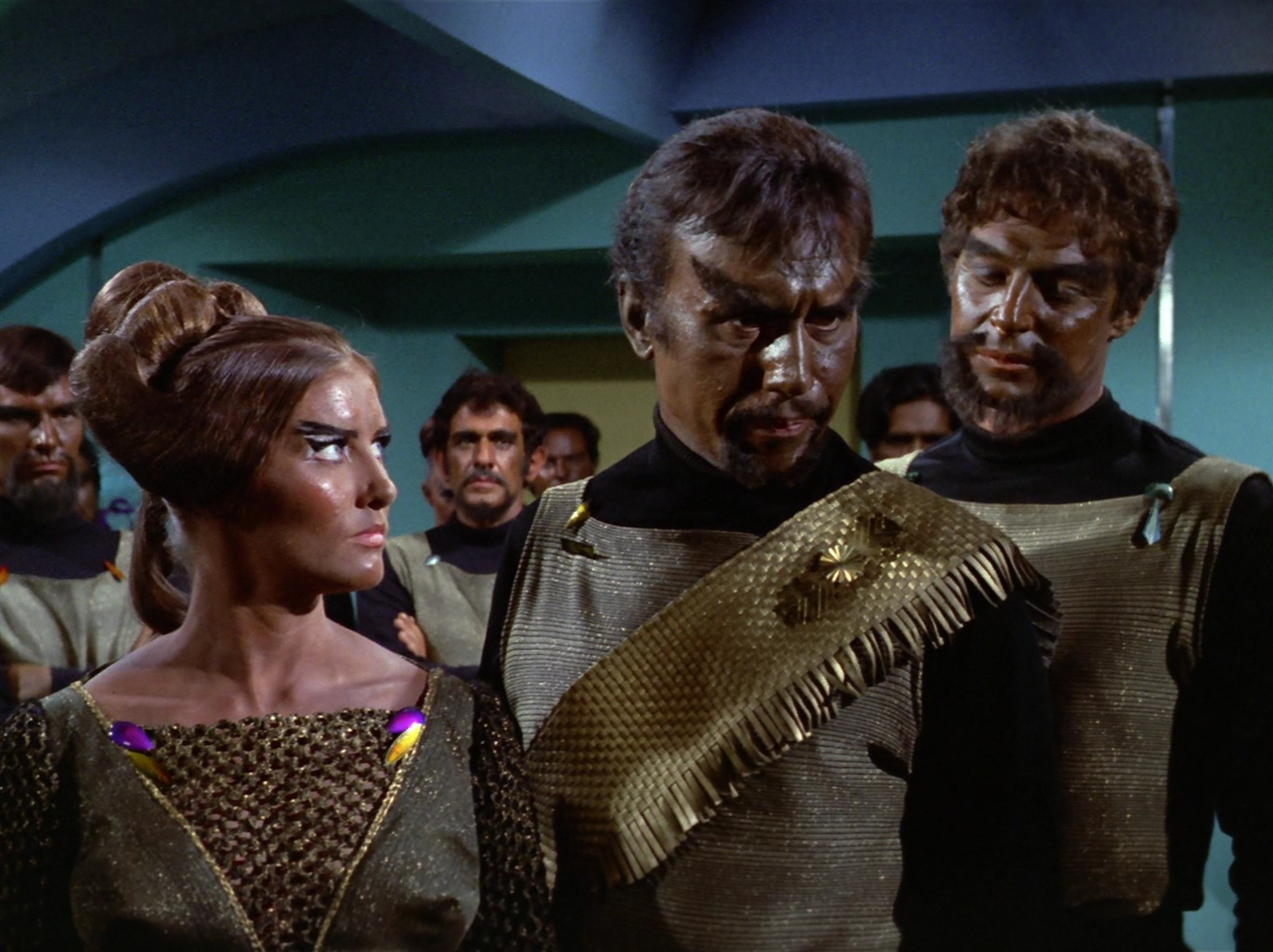#69. Day of the Dove
In case you forgot: Ghostly mirror ball incites violence, enmity, and other nasty things between the Enterprise and a captured Klingon landing party. Kirk and the Klingons team up to defeat the monster with the power of laughter.
Ah, back when the Klingons looked like Puerto Ricans and dressed in gold lamé. To be fair to this episode, even though there are only two TOS episodes below it on this list, I can imagine a world where I'd sit through a rewatch of Day of the Dove (which I keep wanting to type as Dave of the Dove or Day of the Dave for some reason). I can't imagine a day where I'd ever want to sit through The Omega Glory or The Paradise Syndrome ever again.
You have to admire Roddenberry's vision of a relatively peaceful future (aside from necessary, plot-instigating incidents) without racism or prejudice, but sometimes TOS's anviliciousness is a little too much to bear. Here is one of these cases: Kang opposes a ceasefire, and so Spock and Kirk have to give really passionate speeches about peace and tolerance and stuff. Surely a war-like people with enough logic and science to have space-faring technology that's even superior to the Federation's in some respects (e.g., their cloaking devices) would understand that to guarantee their own survival, violence has to wait for another day; Kang's resistance, which borders close to Idiot Ball territory, really takes you out of the episode.
Which is too bad, because the episode has potential. The ghostly mirror ball that feeds off of negative vibes is an idea similar to one in an episode we'll be looking at eventually, Wolf in the Fold, only that power manages to be a lot more sinister, even if it was only in the episode for a grand total of fifteen minutes—mainly because it actually did things to foster the negative feelings it craved so much, going so far as to take over the entire ship's computer. It obviously had something like active agency. Conversely, the ghostly mirror ball in Day of the Dove does fuck all for most of the episode, aside from keeping the Klingons and humans (and Spock) alive. It has no agency; it chooses to rely on hope and dumb luck for the two of them to provoke each other, even though it seems like it could do a lot more to provoke them. (It gave Chekhov a lifetime of false memories of a dead brother, after all.) If more time had been spent on the evil godlike being going around and actually creating chaos and violent encounters, and less on the Aesop and protracted scenes of fake laughter, it could have been pretty good. But there wasn't, so it isn't.


No comments:
Post a Comment